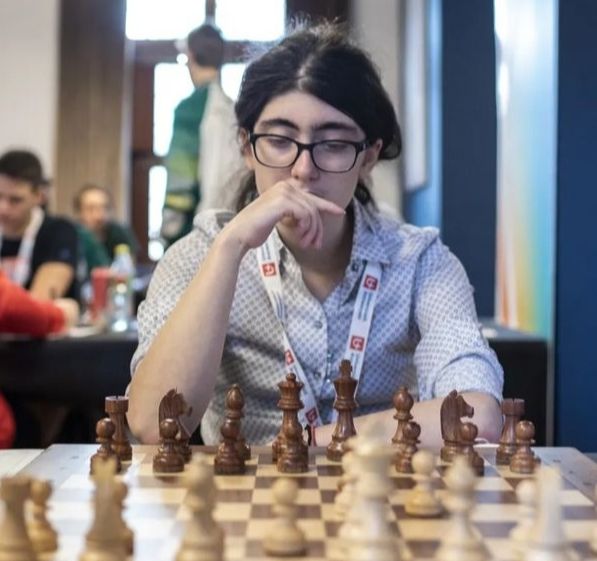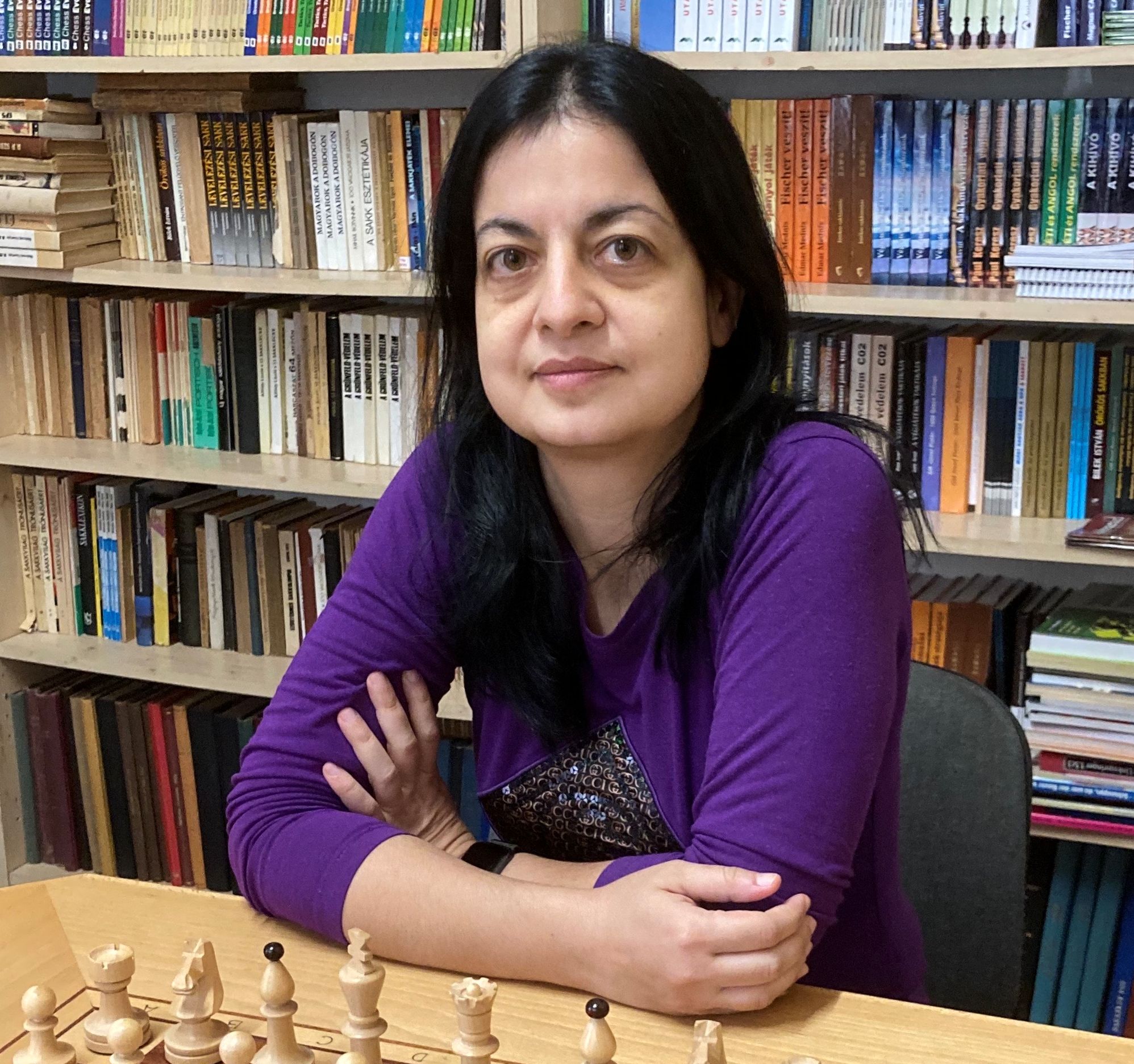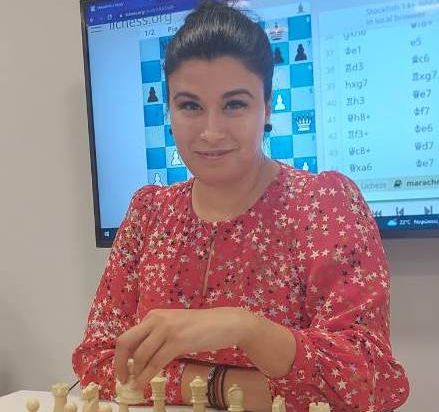
They sacrifice walks, excursions and sleep, conduct intensive live and online training, impress with their photographic memory and strategic thinking… Greek chess players, like other bees, work quietly and efficiently, conquer peaks and create a good brand in the world. international tournaments, although the Greek state still does not invest in them. “Greece, although a small country with no chess tradition, already in the 80s had a strong presence of women in chess, such as Eva Kontou, Anna-Maria Botsari and Marina Markopoulou.” says Mrs. Marianne Stephanides “K”., President of the Women’s Chess Committee and the Kallithea Chess Club. This committee has 25 members from all over Greece. “They keep bringing in new girls,” he says, thanks to the lockdown and the big success of the Netflix series. “Queen’s Gambit” Chess is constantly gaining popularity.
“Play chess.” This is an “order” of advertising that accidentally sees Anastasia Avramidouwhen he is 6.5 years old. Soon, she and her younger sister start playing chess at the Polichni Chess Club. As a child, Anastasia is versatile. “I did English, German, IT, swimming and then basketball.” speaks today in “K” The 23-year-old athlete from Thessaloniki, two-time European champion, 2nd place finisher at the 2022 World University Game and a key player in the Greek national team. “Thanks to tournaments, I have a strong motivation to improve my English, from other activities I have saved basketball, because I am convinced that I need physical activities along with physical ones.” Anastasia’s talent quickly manifested itself. “For the sake of participating in the Olympiads, I was absent from school, in the 1st secondary school the teachers said:“ She writes control tests well, but we don’t know her. ” To chess she attributes her photographic memory, her discipline, her obedience to the rules. Today, Anastasia divides her time between medicine, chess lessons she gives to students, and personal reading for at least three hours a day. “The role of a coach fills me, and I want to continue it, but I have set my own goals – in the agricultural season I will do my best to get the title of “female grandmaster”.

“Under-advertised”
Today, the 30-year-old girl starts her career from Polichni in Thessaloniki. Katerina Pavlidou, Mediterranean swimmer, 3rd place in the Pan-European Blitz Championship and a key member of the Greek team. “It all started for me when my uncle gave us a chessboard.” She and her brother, who were five and seven at the time, are excited and sign up for a chess club. At the age of eight, Katerina wins the first pan-Greek championship in the under-ten category. “Chess is turning into a family project for us,” she says, as both she and her older brother Tasos quickly show their talent for chess, which the third child in the family also successfully masters. “Behind every successful player there is a family that supports him psychologically and financially, a parent who accompanies him to multi-day tournaments around Greece and the world.” Thanks to chess, “I learned to study my opponent and properly allocate my time.” An example of the strategic thinking she developed was her choice to become a police officer. “I decided, on the one hand, for immediate professional rehabilitation, on the other hand, because thanks to the relevant presidential decree, I have the right, as a police officer, to have permission to participate in the relevant chess tournaments,” explains the 30-year-old chess player who trains, plays online and read every day. However, Katerina believes that chess does not yet occupy the place in our collective consciousness that it deserves. “Our sport is not only under-advertised, it’s often downplayed, I meet people who see it as the other side of backgammon.” In the countries of the former USSR, in China, India and even in Turkey, players have sponsors, the state encourages them to play exclusively chess.
“Behind every successful player is a family that supports him psychologically and financially, a parent who accompanies him to multi-day tournaments.”
The ratio of women and men in chess is 1/5. There are open events (for both genders) and others exclusively for women. “Our games are more competitive than men’s games,” says Ms Stephanidis, who was introduced to the world of chess at the age of 3.5, “they rarely end in a draw.” Despite the heat of the match, “off the chessboard we maintain a close and sincere friendship.” Sexist comments are often heard at chess tournaments. “The most common opinion was that women’s chess was inferior to men’s,” recalls Anastasia Avramida. However, constant contact with the outside world proves to Anastasia that this word … is not true. “In Poland and Georgia, the prize money is equal for both sexes, but most of the discrimination comes from women.”

“Unique Chance”
For chess players all over the world, the most recognizable Greek woman is the referee. Tanya Karalis, who a few weeks ago was promoted to the category of International Arbiter A’ (International Arbiter A’) – the only Greek woman in this position (the other two are in the international category of arbitrators B’). 85 men and only 15 women from all over the world were categorized as A’. “I started playing chess at the age of 26, which is a very respectable age by chess standards,” she says. “I am a regular chess player – I have basic knowledge and experience of the game, so I am a player.” Tanya accidentally attends her first nutrition seminar in Athens in December 2010 “because I like the chess world where there are no barriers, chess brings people together different ages and nationalities, a 7 year old can play with a 77 year old “one year old”. She continues to hold seminars where know-how is exchanged through role-playing, and also participates as a judge in many tournaments, gaining experience. Her hard work and devotion to the chessboard, her language skills, as well as her composure prove to be unique virtues needed for a referee. “Thanks to this job, I have a unique opportunity to visit places that I would never go.” Her best memories are of the Olympics when she attends 2018 in Georgia and 2022 in India. “I met athletes from countries I didn’t know existed, I judged matches where chess players were dressed in a traditional Kyrgyz hat and colorful African uniforms,” she enthuses. “I go to every competition like it’s my last,” he concludes, “in the sense that I give my best.” Tanya is appreciated for every appearance. “Based on my performance, it will be decided whether I will be called again or not,” she explains, who now earns her living as a referee.
Those chess players who did not play under Tanya’s close attention got to know her through the Swiss Manager manual. “During the first quarantine, I wrote a manual in English on the most common lottery system, which determines who will fight whom.” Tanya Karalis’ manual has already been translated into ten languages and distributed throughout the chess world.

Source: Kathimerini
Ashley Bailey is a talented author and journalist known for her writing on trending topics. Currently working at 247 news reel, she brings readers fresh perspectives on current issues. With her well-researched and thought-provoking articles, she captures the zeitgeist and stays ahead of the latest trends. Ashley’s writing is a must-read for anyone interested in staying up-to-date with the latest developments.